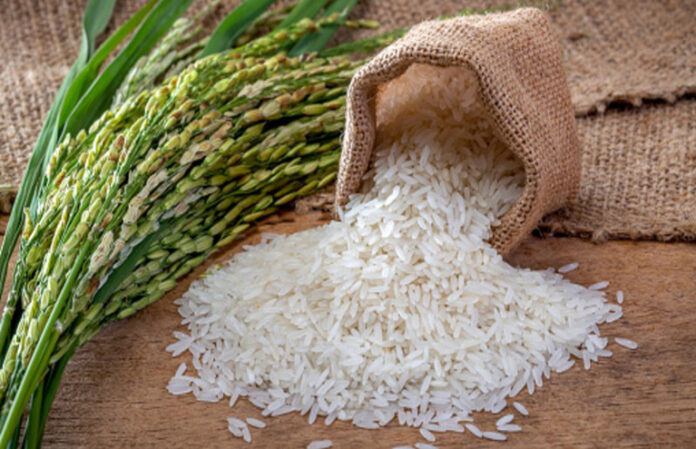Tags
Government forms inquiry committee for rice export issues; is it necessary?
By Ghulam Abbas

ISLAMABAD: As the federal government continues to grapple with the unresolved wheat scandal inquiry, the Prime Minister has now formed another high-level committee to investigate the rising number of rice consignment interceptions in the European Union (EU). This new committee will also examine repeated complaints lodged by a commercial fumigator and clearing agent, Ahmad & Kamran Traders.
The committee, chaired by former Federal Secretary Shahid Khan, includes several key officials: the Secretary of the Ministry of National Food Security and Research (MNFSR), the Chairman of the Federal Board of Revenue (FBR), the Special Secretary of the Ministry of Commerce, the Chairman of the Rice Exporters Association of Pakistan (REAP), the Secretaries of the Agriculture Departments of Punjab and Sindh, Additional Director General of the Federal Investigation Agency Abbas Ahsan, and Director of the Intelligence Bureau Mr Abbas Ahsan. The committee has the authority to co-opt additional members as needed.
The primary task of the committee is to investigate the reasons behind the non-compliance with food safety standards that have led to rice interceptions in EU countries. It will also assess the Department of Plant Protection’s failure to enforce these standards, which has negatively impacted Pakistan’s external trade. The committee will identify responsible officers within the DPP who issued inaccurate phytosanitary certificates and investigate claims that DPP employees created monopolies by selectively licensing fumigation services for personal gain.
Furthermore, the committee will review why recommendations from a previous inquiry into the DPP, conducted in 2021, were not acted upon by the Ministry. It will conduct a comprehensive analysis of systemic issues in the rice export process and recommend both short- and long-term reforms to establish a reliable inspection and certification system in line with international standards. The committee has been instructed to submit its findings to the Prime Minister within two weeks.
GMO Contamination Issue:
A recent and troubling development is the interception of a Pakistani rice shipment contaminated with genetically modified organisms (GMOs) by an EU member country. This has raised concerns about the performance of the Federal Seed Certification and Registration Department (FSCRD) and the Pakistan Agricultural Research Council (PARC), both of which are responsible for testing and registering rice varieties.
Under the Ministry of National Food Security and Research, these agencies conduct trials to ensure compliance with cultivation standards. Moreover, the Environmental Protection Agency (EPA), under the Ministry of Climate Change (MoCC), is tasked with regulating GMO seeds in Pakistan.
The EU notified Pakistan that an organic Basmati rice consignment, imported by the Netherlands, contained unauthorized GMOs. The contamination, flagged on August 2, 2024, by the EU’s Rapid Alert System for Food and Feed (RASFF), was detected on July 31, 2024.
Industry insiders suggest that GMO contamination may have originated from Chinese seeds used in fields where aromatic Basmati rice was grown the previous year, leading to cross-contamination. The Punjab government also voiced concerns about the distribution of GMO rice in 2018. That year, Pakistan blocked a shipment of Chinese rice seeds, resulting in diplomatic discussions between Islamabad and Beijing.
Is an inquiry needed?
Pakistan is a major exporter of Basmati rice to EU markets. An analysis of the EU’s RASFF portal reveals that Pakistan’s rice interceptions, ranging from 17 to 77 over the last five years, are not significant compared to India, China, the USA, Turkey, Vietnam, and Thailand, which have faced between 11 and 328 interceptions. These interceptions are primarily related to food safety, including Maximum Residue Limits (MRL) of pesticides, despite Pakistan implementing stringent EU regulations.
Interceptions are a common occurrence in the vast international trade of food products due to various reasons. In most cases, corrective measures are taken in consultation with trading partners. Unfortunately, Pakistan lacks a dedicated food safety authority at the federal level to regulate the movement of food products, and this deficiency has persisted since the country’s inception.
Pesticide-related MRL issues often arise from the indiscriminate use of banned pesticides or premature harvesting by farmers. Proper pesticide use can only be ensured at the field level. While provincial agriculture departments are responsible for crop production services, there is a lack of harmonization in food safety legislation between the provinces.
The Department of Plant Protection (DPP), under the Pakistan Plant Quarantine Act, oversees the import and export of agro-commodities but has not historically been empowered to enforce food safety measures. However, recent amendments to the Pakistan Plant Quarantine Rules, notified on August 23, 2024, have empowered DPP inspectors to conduct food safety inspections at ports.
The composition of the current inquiry committee, which includes intelligence and law enforcement officials but lacks technical experts in plant quarantine and food safety, has raised eyebrows.
Industry experts argue that food safety interceptions are not the result of DPP failures but rather due to the absence of a dedicated federal food safety authority and appropriate legislation. They have expressed concerns about the current formation of the committee and fear that the committee might be solving problems that do not exist.
2021 Inquiry Report:
The committee is also expected to revisit the findings of a 2021 report, authored by Mr. Rashid Mehmood Langrial, which highlighted shortcomings in the DPP. While the report’s recommendations were not approved by the then Secretary and Minister of MNFSR, some of its suggestions were later implemented in 2023.
Currently, DPP is severely understaffed, with only 17 regular technical officers overseeing inspections at all ports of Pakistan. This shortage is exacerbated by the fact that more than 50 technical officers have resigned due to job insecurity, leaving the DPP ill-equipped to manage its responsibilities.
The Sindh High Court recently ordered the MNFSR to address the staffing shortage in locust control operations, further underscoring the DPP’s personnel crisis.
https://profit.pakistantoday.com.pk/2024/10/02/government-forms-inquiry-committee-for-rice-export-issues-is-it-necessary/Published Date: October 2, 2024






